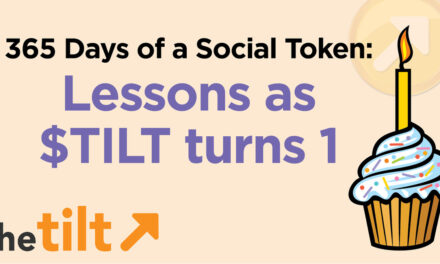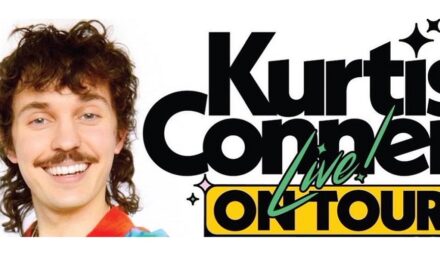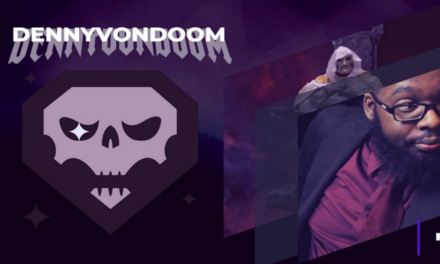You work and work in your content business. One day, you take a moment – or perhaps the moment takes you – to see it’s working, and often working really well.
So, how do you know when content business success hits? Since there is no singular definition of success, we asked some of the expert creators speaking at CEX to complete this sentence:
“I knew my content business was a success when …”
“My audience started paying for access to my content. It provided me the proof I needed to believe that my insight, advice, and perspective was truly valuable to an audience I own.” – Andrew Davis, bestselling author and internally acclaimed speaker
“My podcast got the No. 1 spot in the running category in the US in its debut week.” – Claire Bartholic, creator, host, and author of The Planted Runner
“I created my first digital, scalable product. No longer was I making money only on one-on-one coaching but on a book that I wrote part time over a few months that immediately bumped me up to an income that was equal to my non-creator friends working full time.” – Rachel Smith, founder of Rachel’s English on YouTube
“I had the freedom to go on field trips with my kids. Why? I want to be the dad who’s always around, yet I’m also the primary breadwinner in my family. Add to that my own desire to do meaningful work while keeping control of my calendar, and that idea of field trip freedom communicates various values coming together.” – Austin L. Church, author and founder of Freelance Cake
“I was getting referrals off referrals. Knowing that I was making an impact for not just clients but anyone who hopped on a Zoom call with me, enough for them to refer me to someone else who trusted them, proves to me time and time again what a difference I make, even in just a single conversation! I still get most of my business via referrals from past clients and I’m proud to say that my clients not only become great friends, but also my greatest marketing allies.” – Cat Margulis, host of Passion Project podcast, author, and book coach
“Creators whom I had never met stopped me in the hallways at conferences saying I had helped them land five-figure sponsorships because of my videos.” Justin Moore, founder of Creator Wizard
“Well-known industry leaders started asking me to mentor inside their programs, create curriculum for them, and partner on projects together.” – Michelle Martello, founder of Minima Designs
Set goals that lead to those content business success ‘moments’
It’s easy to know the goal for some of those content business success moments. However, others are harder to qualify for in a business plan. But the key takeaway is that you’ll move further and faster in business if you know what you want to achieve.
1. Review the past:
If you set goals, review them to see what worked, what didn’t, and what no longer matters. If you haven’t set goals, look at what you’ve done. Was it successful? Could it have been more successful? What did you discover about your strengths and weaknesses as a content entrepreneur?
2. Brainstorm content entrepreneur goal possibilities:
List anything and everything you would like to achieve as a content entrepreneur and what you want the business to achieve. Dream big and small.
Maybe you want to build a business to a financial level where you can quit your day job. Maybe you want to earn enough revenue to contract with a virtual assistant to help out with administrative tasks you don’t like to do. Perhaps you want 500K subscribers, and maybe it’s to convert 10% of your followers into paying customers. And maybe it’s selling your content business for $10M.
Highlight the top 10 goals on the list.
3. Break into mini-goals and tasks:
Break each highlighted goal into several manageable goals (if necessary) and tasks. What do you need to do or accomplish to attain it? In some cases, you may not have the perfect roadmap. That’s OK. The point is to see the small pictures that are required to create the bigger picture.
Then, go through the mini-goals and tasks and estimate the time to complete them. Depending on the task, it might be two days, or it could be six months or longer.
Now, you are better informed to assess what it would take to achieve your top goals and can pick the ones that you can reasonably expect to accomplish.
4. Build the calendar: Now it’s time to turn your dreams into goals. With each goal, add the target completion date and how you will know if it was achieved – establishing the metrics is essential.
Add those completion dates to your calendar. Work backward, adding dates to achieve your mini-goals as well as the necessary tasks to complete them. By setting deadlines and posting them to your calendar, your goals will remain at the forefront every day.
Learn from expert presenters at Content Entrepreneur Expo. Register today! |
About the author
Ann regularly combines words and strategy for B2B, B2C, and nonprofits, continuing to live up to her high school nickname, Editor Ann. An IABC Communicator of the Year and founder of G Force Communication, Ann coaches and trains professionals in all things content. Connect with her on LinkedIn and Twitter.










